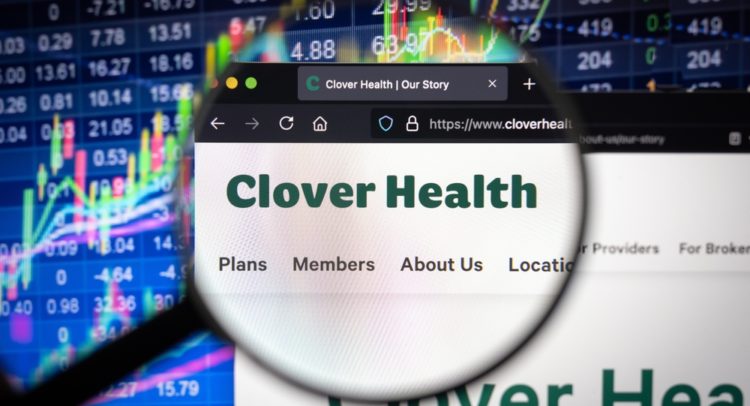Clover Health Investments (CLOV) is a provider of health insurance services. In order to lower patient expenses and enhance medical results, the company uses its own technology platform to gather and analyze health data.
Let’s take a look at what has changed in the company’s key risk factors that investors should know. (See Clover stock charts on TipRanks)
Clover Health Risk Factors
According to the new Tipranks Risk Factors tool, Clover’s main risk category is Finance & Corporate, which accounts for 47% of the total 68 risks identified.
Since June 2021, Clover has updated its risk profile to introduce one new risk factor under the Finance & Corporate and changed one risk factor under the Legal & Regulatory category.
Let us discuss here the new risk factor that has recently been added:
Under the Corporate Activity and Growth sub-category, the company said, “Our expansion into Direct Contracting presents new risks to our business.”
Clover entered the Direct Contracting platform in April to capitalize on the increasing fee-for-service (FFS) market. Clover underlines that as the company’s Direct Contracting business is still in its early stages of development, the company is vulnerable to a variety of risks. Clover warns the investors that the company may not be able to achieve the expected benefits from this new program. Furthermore, any modifications made by the Center for Medicare & Medicaid Innovation (CMMI) about the program’s termination could have a detrimental impact on the business.
On the brighter side, the overall sector average for the Finance & Corporate risk factor is 58.2%, slightly higher than the average risks in that category for Clover, which is 47.1%.
Clover’s Financial Performance
Now let us dive into the company’s financial performance for the second quarter.
Clover reported strong revenue growth, with a year-over-year gain.
Total revenues came in at $412.5 million, up 140% year-over-year. The launch of Direct Contracting contributed to the increase.
Clover, on the other hand, reported a GAAP net loss of $317.6 million in the second quarter. The company generated a net income of $5.4 million in the year-ago quarter.
CEO of Clover Health Vivek Garipalli said, “Clover took another step in its journey to improve every life with the launch of Direct Contracting this past quarter. This milestone more than doubled our revenue and nearly doubled lives under Clover Assistant management.”
Analysts’ Take
J.P. Morgan analyst Lisa Gill recently downgraded the rating to Sell from Neutral and decreased the price target to $9.00 from $15.00. This implies 1.8% upside potential to current levels.
Gill remained concerned about the reduced guidance. She commented, “Clover Health lowered most guidance metrics, including reducing the number of aligned beneficiaries under the direct contracting program in 2021 by 50%.”
Overall, the stock has a Moderate Sell consensus rating based on 1 Hold and 2 Sell ratings.
As for price targets, the average CLOV price target is $9.67, reflecting a potential 12-month upside of 9.4% from current levels.

Related News :
What Do Scientific Games’ Newly Added Risk Factors Tell Investors?
Tilray Subsidiary SweetWater Brewing Launches Non-Dairy Almond Milk Stout
Moderna Submits Data for COVID Vaccine Booster to EMA









